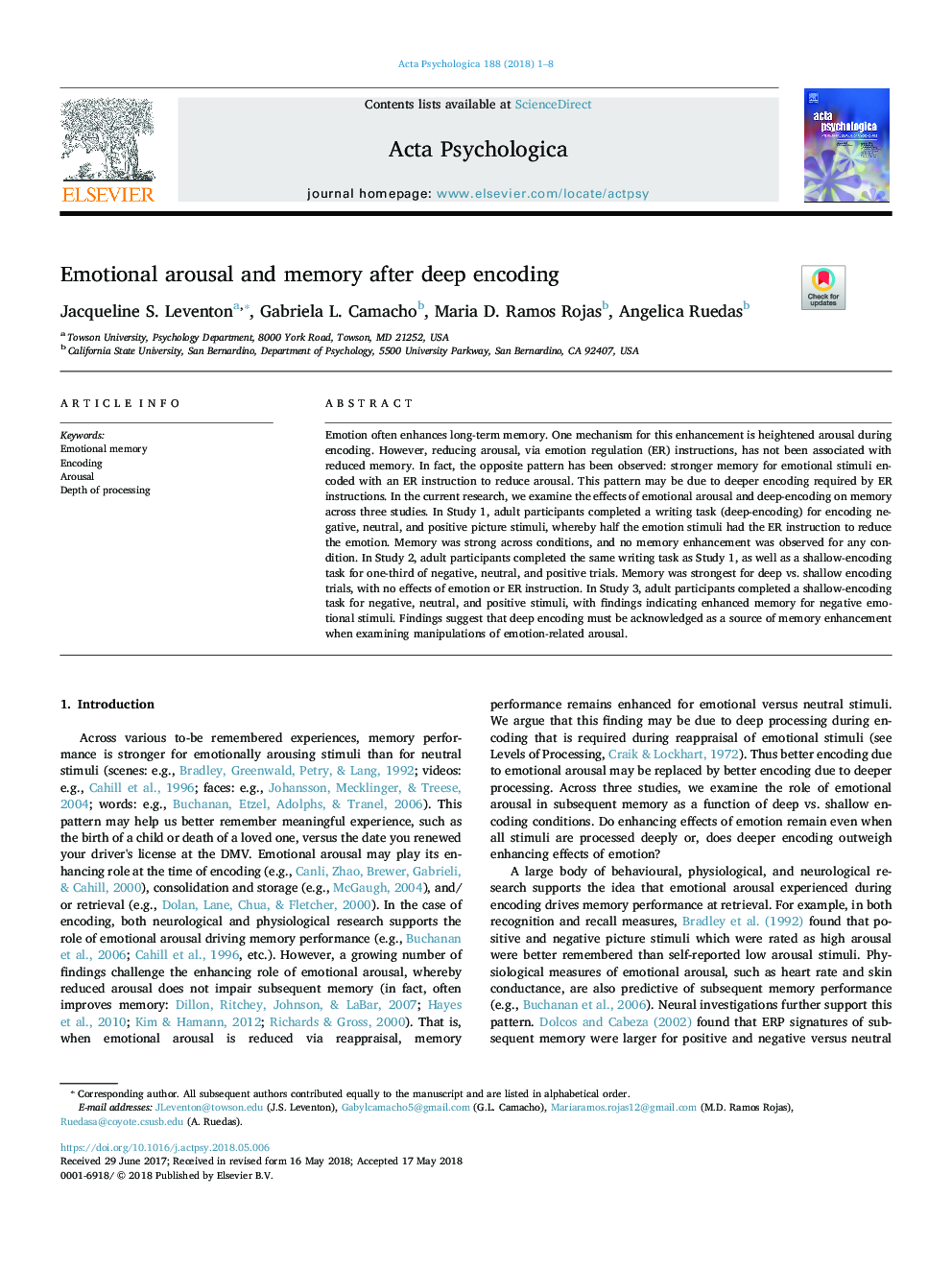| Article ID | Journal | Published Year | Pages | File Type |
|---|---|---|---|---|
| 7276545 | Acta Psychologica | 2018 | 8 Pages |
Abstract
Emotion often enhances long-term memory. One mechanism for this enhancement is heightened arousal during encoding. However, reducing arousal, via emotion regulation (ER) instructions, has not been associated with reduced memory. In fact, the opposite pattern has been observed: stronger memory for emotional stimuli encoded with an ER instruction to reduce arousal. This pattern may be due to deeper encoding required by ER instructions. In the current research, we examine the effects of emotional arousal and deep-encoding on memory across three studies. In Study 1, adult participants completed a writing task (deep-encoding) for encoding negative, neutral, and positive picture stimuli, whereby half the emotion stimuli had the ER instruction to reduce the emotion. Memory was strong across conditions, and no memory enhancement was observed for any condition. In Study 2, adult participants completed the same writing task as Study 1, as well as a shallow-encoding task for one-third of negative, neutral, and positive trials. Memory was strongest for deep vs. shallow encoding trials, with no effects of emotion or ER instruction. In Study 3, adult participants completed a shallow-encoding task for negative, neutral, and positive stimuli, with findings indicating enhanced memory for negative emotional stimuli. Findings suggest that deep encoding must be acknowledged as a source of memory enhancement when examining manipulations of emotion-related arousal.
Related Topics
Life Sciences
Neuroscience
Cognitive Neuroscience
Authors
Jacqueline S. Leventon, Gabriela L. Camacho, Maria D. Ramos Rojas, Angelica Ruedas,
